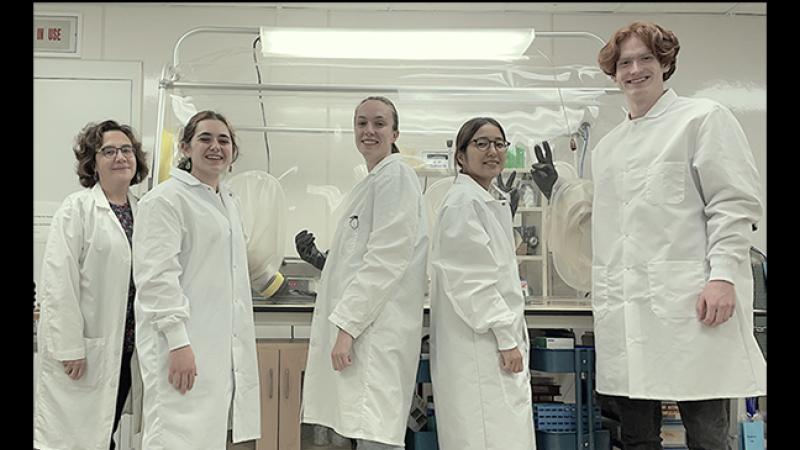Blanca Baquera will investigate the energy generating processes of gut Bacteroides and how they impact our well-being
September 19, 2024

Blanca Barquera's investigation into the energy-generating processes of Bacteroides, the most abundant member of the gut microbiome, and their impact on our well-being holds the promise of significant advancements in human health. Barquera is a professor at Rensselaer Polytechnic Institute in the Departments of Biological Sciences and Chemistry and Chemical Biology.
In recent years, it has become increasingly clear that an unhealthy gut is more than just a source of digestive troubles. A healthy gut is a crucial contributor to heart, kidney, and brain health, and it helps us fend off sickness. The balance of bacteria in our gut is crucial to our overall health, and Bacteroides play a pivotal role in maintaining this balance.
Barquera has been awarded a grant of nearly $3.3 million over five years from the National Institute of Health's National Institute of Allergy and Infectious Diseases. The grant aims to improve our understanding of the energy metabolism of Bacteroides.
"Ultimately, we hope this research helps us better understand the features of these bacteria so that we can design more effective probiotic formulations," said Barquera. “Probiotics help us achieve bacterial balance in our guts, which has far-reaching implications for our overall health."
Barquera's group previously found that Bacteroides have a complex respiratory chain, or system of electron carriers, that provides substantial energy and enables essential metabolic processes. "Our preliminary results reveal new and unexpected complexities of the respiratory pathway, new terminal electron acceptors that we predict contribute to bacterial and host fitness, and differences between Bacteroides species that likely impact microbiota composition," said Barquera.
In this research, Barquera's research group will study essential enzymes involved in energy metabolism that drive the transport of carbohydrates into the cell. These carbohydrates are a significant part of the host's diet and can be easily utilized by Bacteroides species for nutrients.
The researchers will also investigate how Bacteroides can use Vitamin K from the host's diet. Vitamin K is an essential nutrient for both humans and bacteria, and Barquera seeks to understand how bacteria can modify this nutrient into forms it can use for metabolism.
Barquera will also study how another important respiratory enzyme can protect bacteria against toxic nitric oxide produced by the host intestine during inflammation.
With these three goals in mind, Barquera ultimately seeks to understand how human gut bacteria can influence the health of their hosts. The basic knowledge revealed by this research can provide a foundation for interventions in the microbiome that improve human health.
"I look forward to watching Professor Barquera's research illuminate the physiology of gut Bacteroides," said Curt Breneman, Ph.D., dean of Rensselaer's School of Science. "Insights from her work will provide a greater understanding of how gut health can be optimized by intervention to improve overall health and prevent disease."